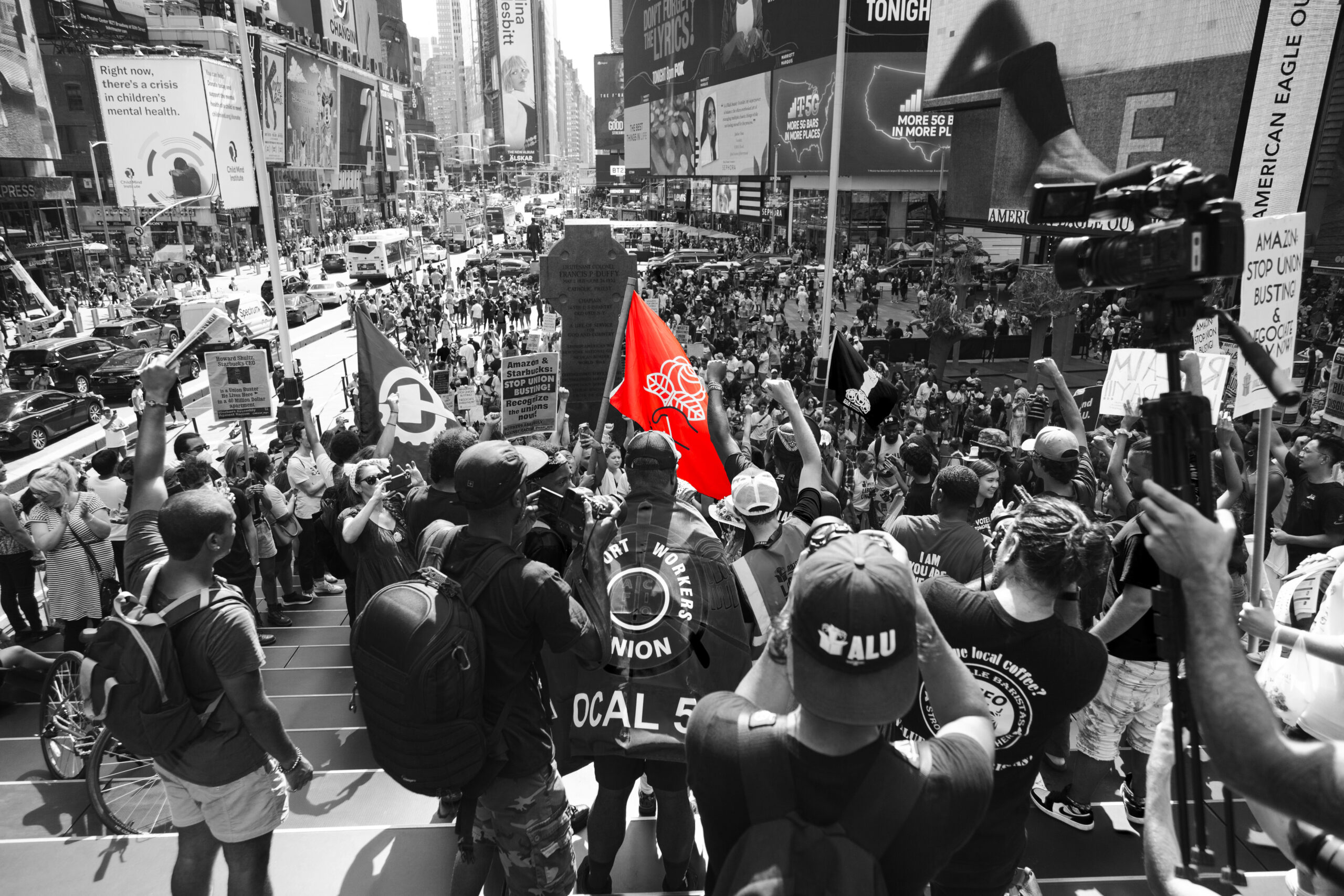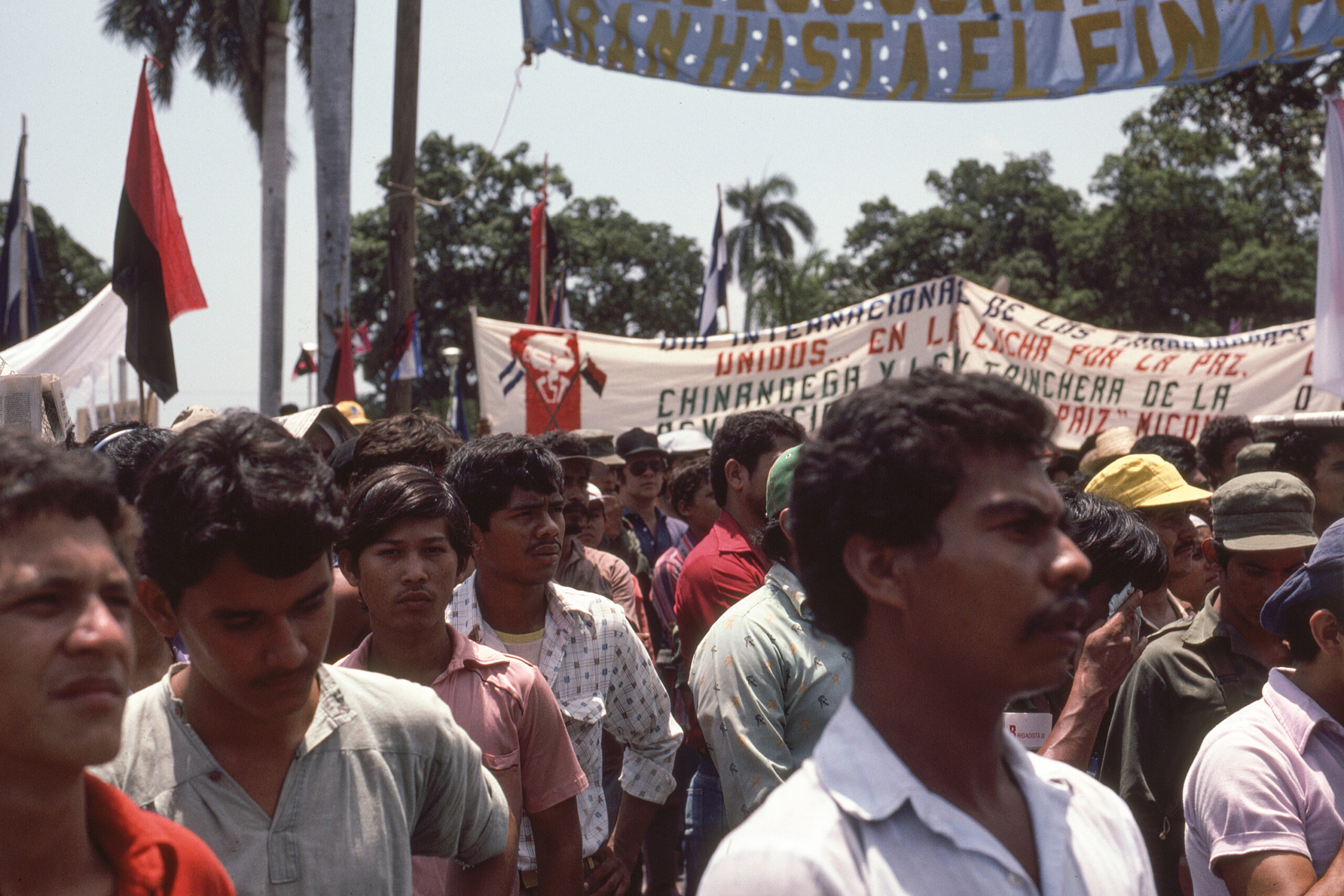How should members of DSA who are part of a visiting delegation conduct themselves? With whom should members of a delegation meet?
I draw from my own personal experiences with delegations to answer these questions, which highlights the importance of being clear about what purpose delegations serve.
My direct personal experiences began with Central America labor solidarity work during the 1980s. I was a member of DSA, during part of that time on the NPC, always reporting back to the organization. However, my three solidarity missions were primarily financed by my SEIU local in Pittsburgh. The delegations were organized by the National Labor Committee on Central America [Nicaragua, 1984], a solidarity/peace conference at the Jesuit University of Central America [El Salvador, 1986], and the U.S. Guatemala Labor Education Project [Guatemala, 1988].
I learned is that solidarity delegations serve various flexible purposes, and hence have different requirements and demands.
The Nicaragua delegation was composed entirely of activists and local staff from multiple U.S. unions. Our common purpose that we had agreed to was to bring back a detailed report on why the U.S. government should not be supporting the “contras” in the civil war against the Sandinista regime. To do so effectively, we crisscrossed Nicaragua for nearly two weeks, mostly visiting workplaces and union offices. We met with both supporters and [unarmed] opponents of the regime. We found the government largely cooperative, even if sometimes uncomfortable with our decision to meet with the widest spectrum of unions.
Our formal written report made a strong case for ending U.S. support for the contras, while providing a balanced assessment of the status and conditions of Nicaraguan workers and unions. Most of us met less formally with leaders of our own unions. Another SEIU local officer and I met for two hours with the then SEIU President John Sweeney. Our meeting helped lay a basis for what became SEIU’s break with U.S. cold war policies at the SEIU Convention in 1988, where I gave the major motivating speech for the consensus resolution that was hammered out in the Convention’s International Committee.
The delegation to Guatemala was smaller, but had a more complicated mission. We were officially there to help workers at the Lunafil factory get back to work and stave off a threatened military incursion into the occupied plant. An additional private mission was to find out from the Guatemala President Vinicio Cerezo if it would be possible for a representative of the exiled opposition to safely return to Guatemala for peace talks. Cerezo was a complete prisoner of the military in his presidential palace, his office bugged and a crack counter-insurgency detail in his outer office. Through a chain of meetings with various government officials, we managed to meet with Cerezo himself and get his whispered response (“No, not yet!”). We also successfully persuaded the owner of the Lunafil factory, a large coffee plantation magnate and head of Guatemala’s Chamber of Commerce, to reach an agreement with the strikers, by threatening to campaign against Guatemala’s trade preferences in Congress.
What I learned from these quite different delegations is that it is important to have a clearly defined and agreed upon mission, but also to be flexible and to insist on meeting with a wide spectrum of people in order to gather information essential for meeting the intended objective. In my subsequent work as a global organizer for the IUF, I found it valuable to meet with unions not affiliated with the IUF. For example, when visiting the Philippines to support IUF affiliated unions in the food, beverages, and hotel sectors, I always asked to meet with representatives of their ideological counterparts in the more radical Kilusang Mayo Uno labor confederation [KMU]. In my IUF capacity, I also accepted invitations to observe meetings of socialist and communist parties with whom IUF-affiliated unions had ties, such as the Cape Town branch of the South African Communist Party or the Irish Labour Party in Dublin.
Are the experiences drawn from global labor solidarity organizing applicable to DSA international work?
I believe that they are. We may have varying definitions of democratic socialism. For me the definition must include the ability of the working class to organize itself autonomously and to function democratically without interference from any regime, whether of the Right or the Left. There are no viable shortcuts in the longer run. Our permanent solidarity is not with any self-proclaimed “socialist” regime or one-party state. We come closest to ever-evolving working-class based democratic socialist movements when we do not try to prescribe what political choices those movements against capitalist domination make.
To align ourselves with these struggles, we are on safe ground when we learn from broad Left movements in other countries that have demonstrated that they can win mass electoral support from the working class and other subordinated classes. This is why we participate in exchanges of mutual solidarity and political education of cadres with the Workers Party in Brazil and aspire to do the same with Morena in Mexico.
This does not mean that there is nothing to be learned from smaller Left parties like the PSOL in Brazil, the Communist Party of Kenya, Zenko in Japan, or many others. Nor does it mean that we should not engage organize broad and inclusive delegations like ours to Cuba, which was sharply focused on ending the unjust US sanctions regime and took no collective position on the nature of the Cuban regime.
DSA remains internationally a work in progress. But to become a serious contender for national political power in the USA, we must be open to learning more from and about the working-class based socialist movements beyond our borders.
Photo: 1984 May Day Rally in Chinandega, Nicaragua. Photo by SLR Images licensed under the Creative Commons Attribution 2.0 Generic license.

